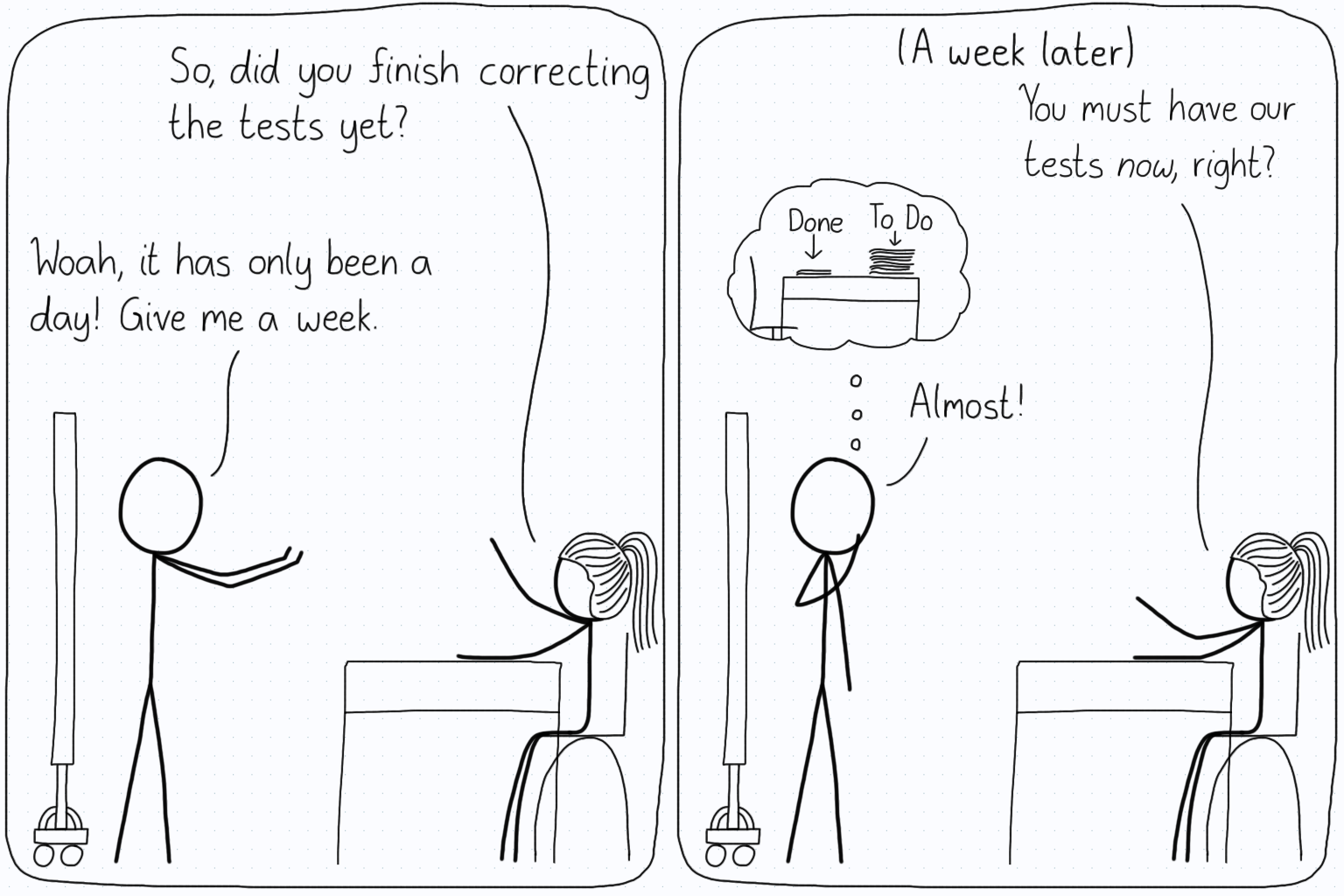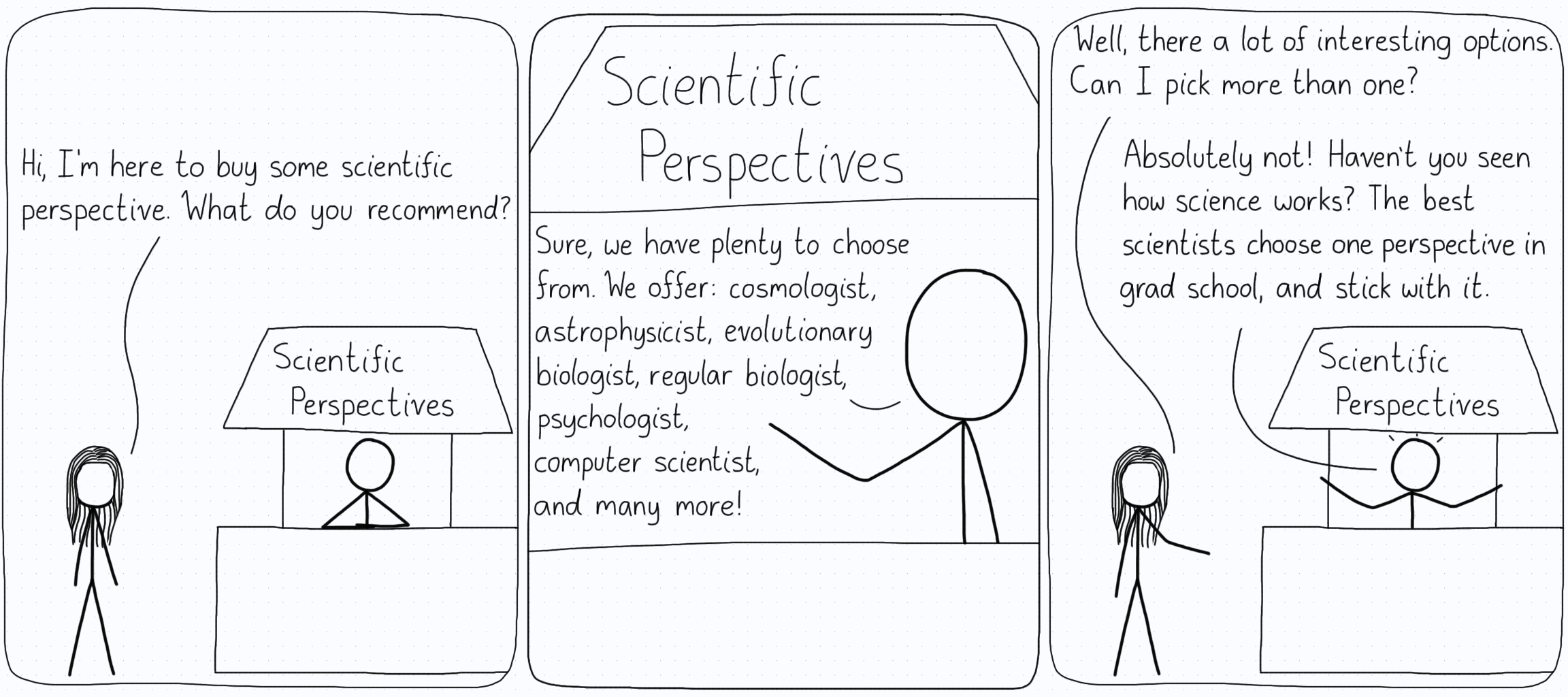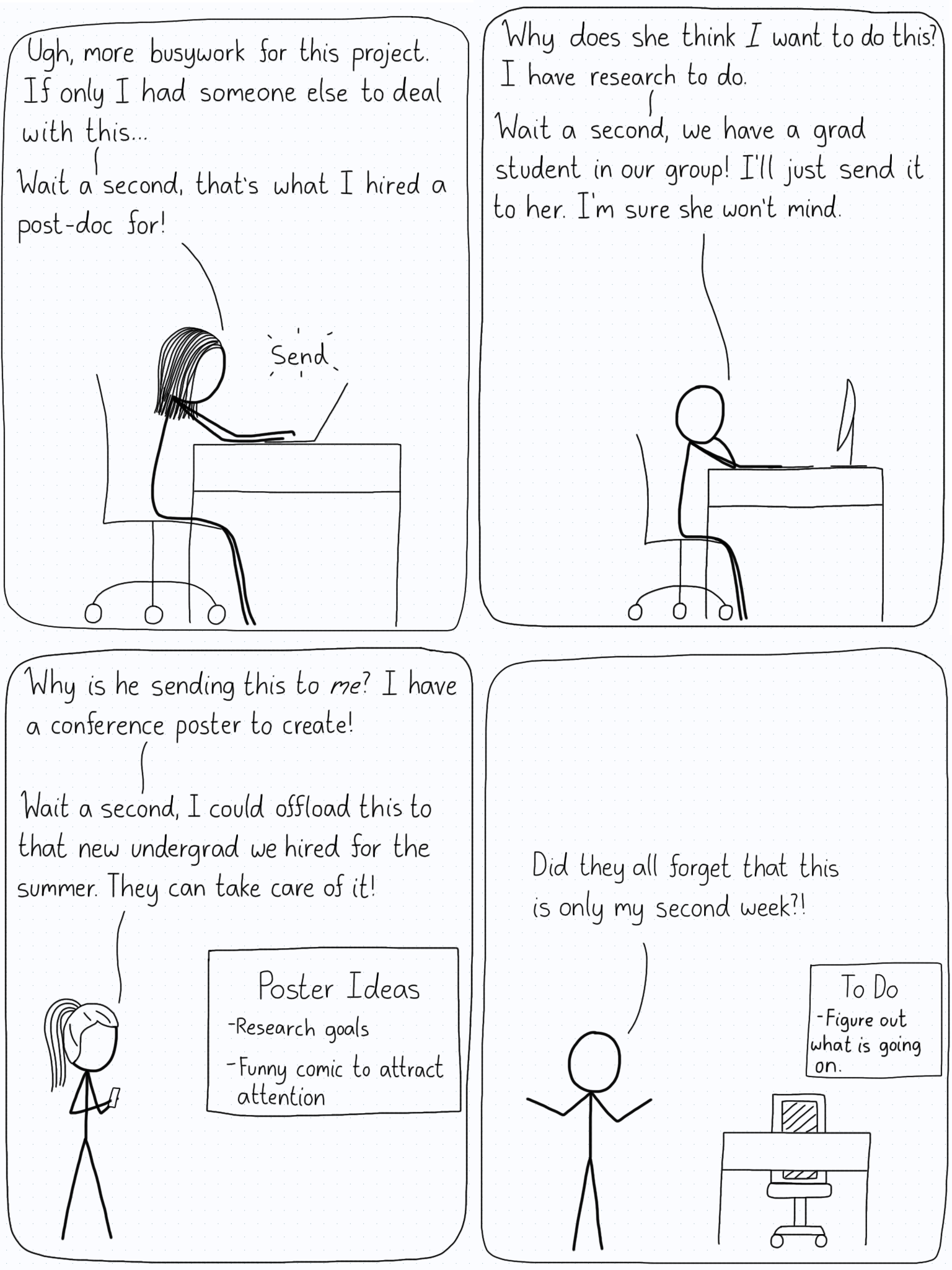 Comics about mathematics, science, and the student life.
Comics about mathematics, science, and the student life.
A.I.

“Oh, and I’ll cover my bases at the beginning by asking for a thousand more wishes!”
15 May 2020Correcting

The variety among teachers for getting assignments and tests back is remarkable. My supervisor would get our final exams corrected and our grades posted on the same day as the exam, while others try to get as cozy as they can with the deadline.
13 May 2020Sure

Why do the issues always pop up the second our professors leave? It’s almost as if we are trying to look smart in front of them when we are really lost.
Oh wait.
11 May 2020Hovering

I only uncovered this while browsing some other research papers and noticing that the hover state acts just like a link with its own URL. I immediately went to check if my past papers had anything crazy. Thankfully, there was nothing I could see.
08 May 2020Typesetting

Thankfully, I’ve never had to do this myself. However, I have seen it while looking at old papers, and I can tell you, it looks bad.
06 May 2020Scientific Perspective

I think I’ve shown my biases when it comes to listing a variety of scientific perspectives…
04 May 2020Chain of Command

The next step is the undergraduate sending this work to their future self.
01 May 2020

